I’ve probably said this plenty of times already but it feels like nowadays mental health issues lurk at every corner.
Can this have something to do with a sequence of toxic habits that destroy our mental health without even realizing it?
I’ll take the risk of being called insensitive, but I believe society, in general, slipped into the bad habit of complaining, forgive me – even whining.
This worsens the problem in several ways. People get used to getting sympathy and being excused for their shortcomings.
This can quickly get addictive and they lose the motivation to change things.
Related to the 10 Toxic Habits Destroying Your Mental Health article:
10 Weight Loss Myths holding back your progress

Not only that but slipping into the habit of complaining only reinforces another bad practice – focusing on, and even seeking out the negative in every situation.
Not only that but slipping into the habit of complaining only reinforces another bad practice – focusing on, and even seeking out the negative in every situation.
Fortunately, there’s a way to fight off a negative mindset, chronic stress, and poor mental health.
Start by changing one bad habit at a time.
10 Toxic Habits Destroying
Your Mental Health
1. Playing the blame-game
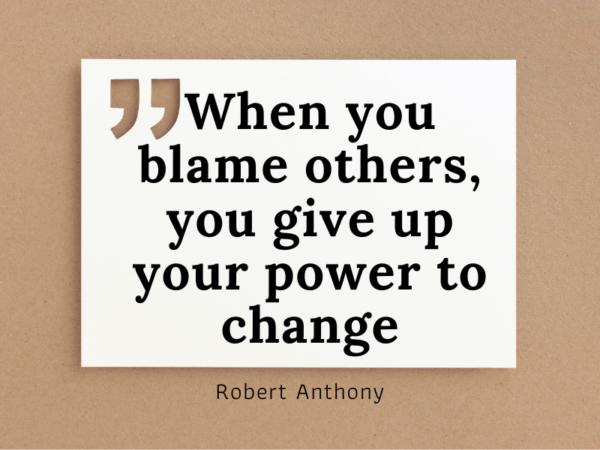
Listen, if you’re spiraling down into a hole of who/what did you wrong, I’ve got bad news for you – this is a neverending trip.
Worst of all – it’s not productive and it’s a sure way to misery.
It’s easy to slip into the “whose fault is it”-mindset and accept yourself as the victim of circumstances.
This leaves you immune to the burden of responsibility, and, honestly, this can be quite appealing.
Unfortunately, whatever situation you might find yourself in, wasting energy by focusing on the wrongdoings of others is a sure way to make matters worse.
At the very least – it won’t improve anything.
Instead, keep your focus on things that are within your control. Make a conscious effort to change your mindset to a more productive one.
Write down what you’d like to change and come up with a step-by-step plan. Taking matters into your own hands is one of the most empowering moves you can make!
Related to the 10 Toxic Habits Destroying Your Mental Health article:
6 Important Things Ruining Your Mood Without You Noticing It
2. Poor stress management
Stress is a normal part of life. In fact, our bodies have developed very intelligent ways of dealing with stress triggers.
These built-in stress responses help us face aggravating situations and adapt to them.
For example, if you have an important job interview to prepare for, the healthy stress response of your body will help you stay more alert, awake, and focused.
The problem with stress comes up when it becomes chronic and there are no relaxation periods.
Make no mistake, if there’s anything that will destroy both your physical and mental health, that’s living with chronic stress.
Worst of all, the longer this continues, the worse the consequences.
Physical problems may manifest in the form of muscle pains, high blood pressure, insomnia, low libido, jaw clenching, digestion/stomach issues, and a compromised immune system.
Mental symptoms may include depression, anxiety, panic attacks, and extreme irritability.
Unfortunately, many of us fail to make any active attempts to counter the stressors in our life. It’s a mistake with a price too high to pay.
What can you do?
1) Relaxation techniques
- Try out meditation, yoga, long walks, and maybe even some wild alone dance parties.
- Anything that works for you and takes your mind away from worry.
- If you’re new to meditation, know that it can take a while until you get the hang of it.
- Once you push through that initial awkward phase, you start to appreciate how much better you get at controlling your thoughts and steering them away from negativity.
2) Don’t let your work and responsibilities consume you (and your day).
- Set time for yourself.
- Pick up hobbies that you enjoy.
- There’s much more to your personality than what you make your living with.
- Never stop investing in yourself and expanding your interests and horizons.
3) Stay connected with positive people
- Nurture your connections with people around you that you feel cheerful and optimistic, that show you support, and understanding.
- A good laugh with a friend is worth more than any therapy.
3. Isolating yourself
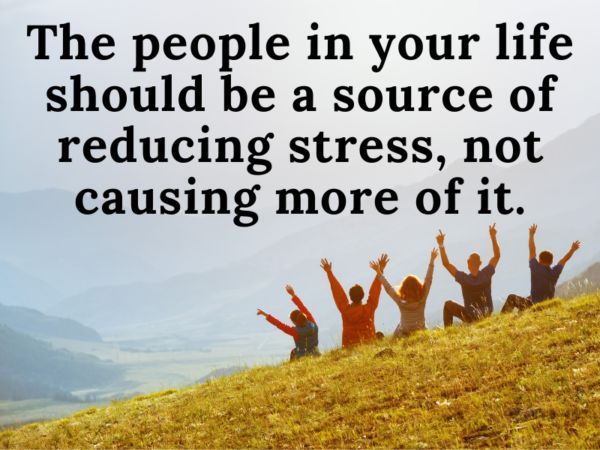
It’s not particularly hard to fall into the trap of isolation, especially in today’s social climate.
We should not forget, however, that we’re social beings meant to live and interact with each other.
Even introverts need human interaction and communication to keep a healthy mind.
It’s really easy to let your negative thoughts consume you when you’re all on your own. Exchanging ideas and experiences with others can give you perspective, reassurance, and comfort.
Socializing makes us resilient.
Whatever means you choose to stay in touch with your friends and family, keep those connections alive and healthy. It’s a great investment in your long-term mental health.
Here are some ideas:
- Invite a friend(s) over for a fun chat/board game night.
- Reach out to a friend/family in a tough situation and offer comfort.
- Organize bike rides with friends in nature/parks
4. Staying up late
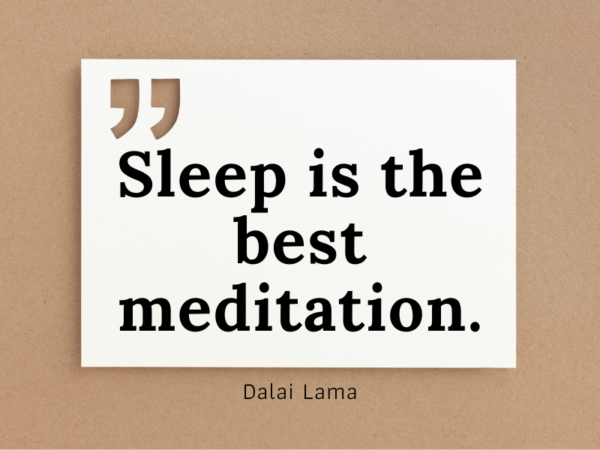
It’s a well-known fact that being continuously sleep-deprived leads to major health issues.
It’s damaging not just your physical but your mental health as well.
Of course, that’s no surprise, given that our bodies and minds are so deeply interconnected.
Having bad sleep hygiene is almost a guaranteed way to get your hormones out of balance.
Your body when sleep-deprived:
- Fatigued, hard to concentrate and absorb information
- Irritable, moody, quick-tempered
- Sugar cravings and messed-up hunger signals lead to weight gain.
- Higher blood sugar levels/increased risk of diabetes
- Low libido
- Poor memory
…and that’s just to name a few. Hopefully, this makes it clear though that building solid, healthy sleeping habits is absolutely essential.
If you’re struggling with falling asleep or improving the quality of your sleep, I strongly suggest checking out this article on sleeping hacks – you’ll find some very useful tips there.
(Related to the 10 Toxic Habits Destroying Your Mental Health article)
5. Never saying “no”
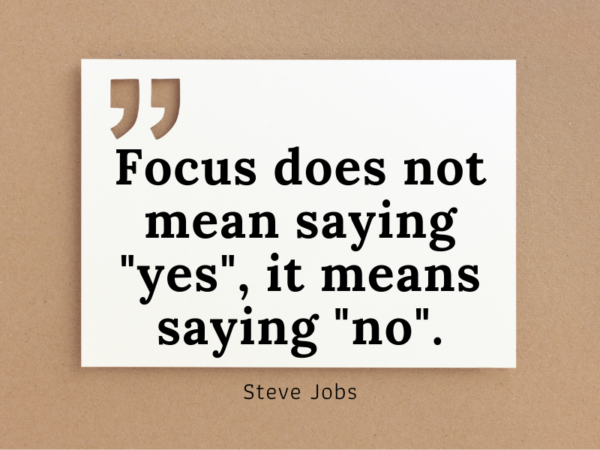
Don’t be a people-pleaser. Remember that if you don’t make yourself a priority, nobody else will.
Set boundaries and don’t let others invade your privacy or pressure you into doing anything you don’t really enjoy/want to do. Yes, even when it’s friends and family.
A lot of us fall into the habit of neglecting our own needs to take care of or satisfy others. Ask yourself this – how long can you keep this up?
It’s like they say – you can’t pour from an empty cup.
Sometimes saying “No” can be a form of self-care. You might find it uncomfortable at first, but continuously failing to adhere to your true desires is infinitely more damaging in the long run.
Learning to stand up for yourself and follow your innermost feelings will give you a strong sense of contentment and confidence in your decisions.
Related to the 10 Toxic Habits Destroying Your Mental Health article:
The Best Morning Routine for Health and Happiness (7 Steps)
6. Poor diet
A diet high in processed foods will alter your microbiome and negatively affect your brain-gut axis. Our gut health has so much more to do with our mental health (and vice versa) than we ever expected.
So much of our emotions and mental well-being are at the mercy of our hormones. One sure way to invite hormonal imbalances and autoimmunity in your life is by having an inflammatory diet.
Consider slowly integrating more whole foods into your diet and cutting out sugars/processed foods.
Small changes can make a huge difference. It might seem daunting at first, but once you get into the habit of cooking your own meals, you’ll never look back.
You might start with a simple rule – if there’s anything on the ingredients list of a product that you can’t pronounce, it’s a good idea to avoid it.
Keeping your gut happy is keeping yourself happy.
Related to the 10 Toxic Habits Destroying Your Mental Health article:
In-depth information on how to restore your gut health in this article I wrote about weight loss tips backed by science.
7. Sitting all day

We’re meant to stay active! And no – moving from your desk chair to your couch in the evening doesn’t really count!
Regular exercise can have a profound impact on your mental health.
Here are some mental health benefits of regular training:
- Release of feel-good endorphins
- Boost your confidence
- Social interactions
- Giving you a sense of accomplishment
If you’re a complete beginner, you should slowly ease into it.
A good idea is to start with bodyweight exercises that will help you master the technique and prime you for adding further resistance as you get better.
Fortunately, we now have some decent equipment at home but there were times when we had none, and my home workouts consisted of bodyweight exercises.
Related to the 10 Toxic Habits Destroying Your Mental Health article:
Extensive list of my absolute favorite bodyweight movements to target every muscle in your body!
With summer right around the corner, there are plenty of outdoor activities you can do as well.
Long walks, for example, can do wonders for your mental health.
8. Letting negativity consume you
If you’re looking to improve your mental well-being, one of the most crucial factors is learning to control and tame your thoughts.
You either control your mind or it controls you.
Napoleon Hill
A negative outlook in life is basically an endless stream of negative thoughts. This accumulation of negativity can alter your life and steal all joy from it.
Changing this takes a conscious and continuous effort.
Constant stress, worry, fear, and anxiety – these are signs you’re probably overthinking the future.
Focus on the present moment and what you can improve NOW.
Decide to be proactive rather than reactive to your circumstances.
Instead of wasting energy on worrying, focus on a solution. Learn to see an opportunity rather than a problem.
Changing your mindset will have a profound effect on your life.
Meditation has helped me greatly with learning how to control and direct my thoughts.
Recognizing what triggers anxiety or negative self-talk can be the first step to creating a positive outlook in life.
Write things down. Journaling can give you a sense of perspective and enable you to separate yourself from your negative thoughts.
Related to the 10 Toxic Habits Destroying Your Mental Health article:
The Best 7 Scientific and sustainable weight loss tips
9. Poor posture
We spend so much time in front of screens these days – slouching shoulders in front of laptops, and craning our necks when we’re on our phones.
Turns out rounded shoulders are more than just an aesthetic problem.
Obviously, poor posture can cause some serious physical pain such as back, neck, and hip pain. You can even have persistent headaches as a result of bad posture.
To add insult to injury, slouching can worsen symptoms of depression and stress.
A 2017 study found that an upright posture can improve your mood, reduce fatigue, and boost self-confidence.
Just as little as 10-15 minutes a day of stretching can have a profound effect on your posture. If you’re new to stretching/foam rolling, this article here explains in detail everything you need to know about it – how, when, and why.
Related to the 10 Toxic Habits Destroying Your Mental Health article:
You might like to check out my most popular stretching routine, consisting of 10 stretching exercises here.
10. Social media overconsumption
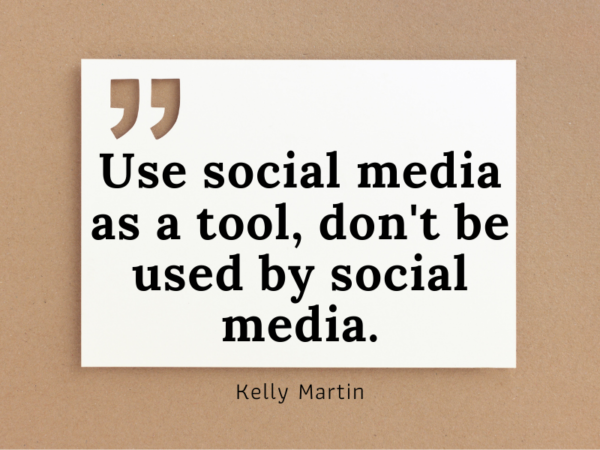
Social media can be a double-edged sword. It transformed the way we share information, it keeps us connected with friends and family and remarkably up-to-date with everything that’s happening in the world.
Simultaneously, social media is a tech phenomenon that impacts society in a variety of negative ways.
Social media algorithms are designed to keep you on their platforms for the longest time possible.
There are no coincidences – whatever you see in your feed was carefully and strategically placed there to keep you engaged and wanting more.
So, it’s no surprise how easy it is to waste generous amounts of time scrolling mindlessly while unable to focus on anything else.
More often than not, we fall into the trap of comparing ourselves to filtered, posed, and highly unrealistic images of influencers whose sole job is to sell us products through false promises.
Then, there comes the problem of people oversharing their personal tragedies online.
Now, one could argue that there’s nothing wrong with that.
There probably isn’t.
The issue is that we have a limited capacity for bearing bad news.
Even if you don’t realize it, overexposure to tragic news (personal or public) on a daily basis can linger on your mind for days on end, slowly eroding your mental health.
At the end of the day, social media is here to stay and it’s on us to learn how to use it to our best advantage.
Set a daily limit to the time you spend on social media.
Be mindful of who you follow online.
Curate your feed in a way that benefits you.
Your social media feed should make you feel inspired, and informed, expose you to different views and opinions (avoid echo chambers), and, sure, give you some laughs.